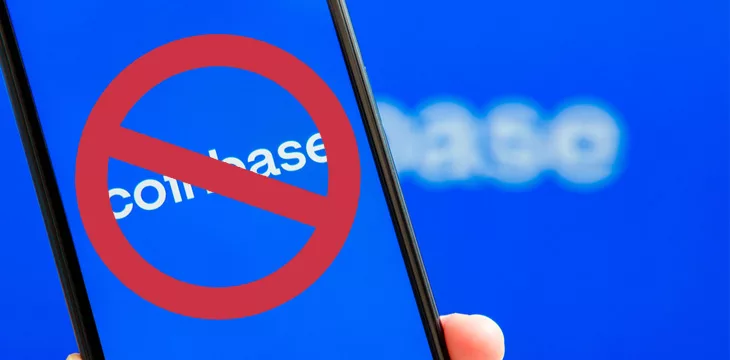|
Getting your Trinity Audio player ready...
|
Kazakhstan has blocked access to Coinbase (NASDAQ: COIN) over breaches of the country’s digital asset laws, according to the country’s Ministry of Culture and Information, as reported by Kursiv News.
“The Information Committee of the Ministry of Culture and Information received a request from the Ministry of Digital Development, Innovation and Aerospace Industry of the Republic of Kazakhstan with a request to block the Internet resource www.coinbase.com, which violates paragraph 5 of Article 11 of the Law of the Republic of Kazakhstan On Digital Assets in the Republic of Kazakhstan,” the Ministry is quoted as saying.
That provision prohibits the circulation of unsecured digital assets and outlaw exchanges that engage with them. There is an exemption for activities conducted within the Astana International Financial Center. Still, such an exemption requires a work permit—which Coinbase does not have.
The Kursiv reporting notes that Binance, ATAIX, CaspianEx, Biteeu, Upbit, Xignat&MT, and Bybit hold that permit—Coinbase does not.
The country also banned many other websites for the same violation, including Interactive Brokers and the New York Mercantile Exchange (NYMEX). Notably, NYMEX was blocked specifically for allowing the trading of futures in BTC and ETH. According to Kursiv, citizens within Kazakhstan are also unable to access the exchange Kraken without a VPN.
Coinbase’s compliance circus
Coinbase told The Block it was investigating the ban but maintained that it “is committed to compliance in all jurisdictions in which it operates.” Given the global scrutiny Coinbase faces, that’s a bold claim. Dutch authorities fined Coinbase millions for failing to obtain a license to operate in the jurisdiction, taking the same line as the Kazakhstan government. In October, securities regulators from all 50 U.S. states wrote to the court overseeing the Securities and Exchange Commission’s (SEC) case against Coinbase (for illegally listing digital asset securities), urging the judge to throw the book at the company.
Rather than focus on compliance, Coinbase CEO Brian Armstrong has directed his efforts at influencing politicians to legislate Coinbase’s way to a free ride. In September, as the SEC’s case rumbled on, Armstrong appealed to the 52 million Americans holding some form of digital assets, urging them to pressure their local representatives to pass ‘clear, sensible legislation’ for the industry.
Any altruistic motives that might be blamed for this move are easily undermined by comments Armstrong made earlier in the year, where he more or less threatened to leave the U.S. for greener (read: less compliant) pastures if ‘clear’ legislation was not introduced in the United States. Given that every single securities regulator in the country is convinced that Coinbase is on the wrong side of U.S. securities laws—a highly improbable consensus in any context—one must assume that Armstrong’s definition of ‘clear’ legislation likely includes allowing exchanges like Coinbase to operate with impunity.
On Kazakhstan’s part, the country has been steadily introducing dedicated laws to govern digital assets since 2021, when legislation was passed that gave the Ministry of Digital Development, Innovation, and Aerospace Industry the authority to regulate Virtual Asset Service Providers (VASPs). In 2022, five more bills were approved on an accelerated track. Those changes were broad and included a new regime for digital asset miners, which requires them to incorporate in Kazakhstan and register with the government to operate in the country to be properly subject to tax.
Follow CoinGeek’s Crypto Crime Cartel series, which delves into the stream of groups—from BitMEX to Binance, Bitcoin.com, Blockstream, ShapeShift, Coinbase, Ripple,
Ethereum, FTX and Tether—who have co-opted the digital asset revolution and turned the industry into a minefield for naïve (and even experienced) players in the market.

 07-02-2025
07-02-2025 





